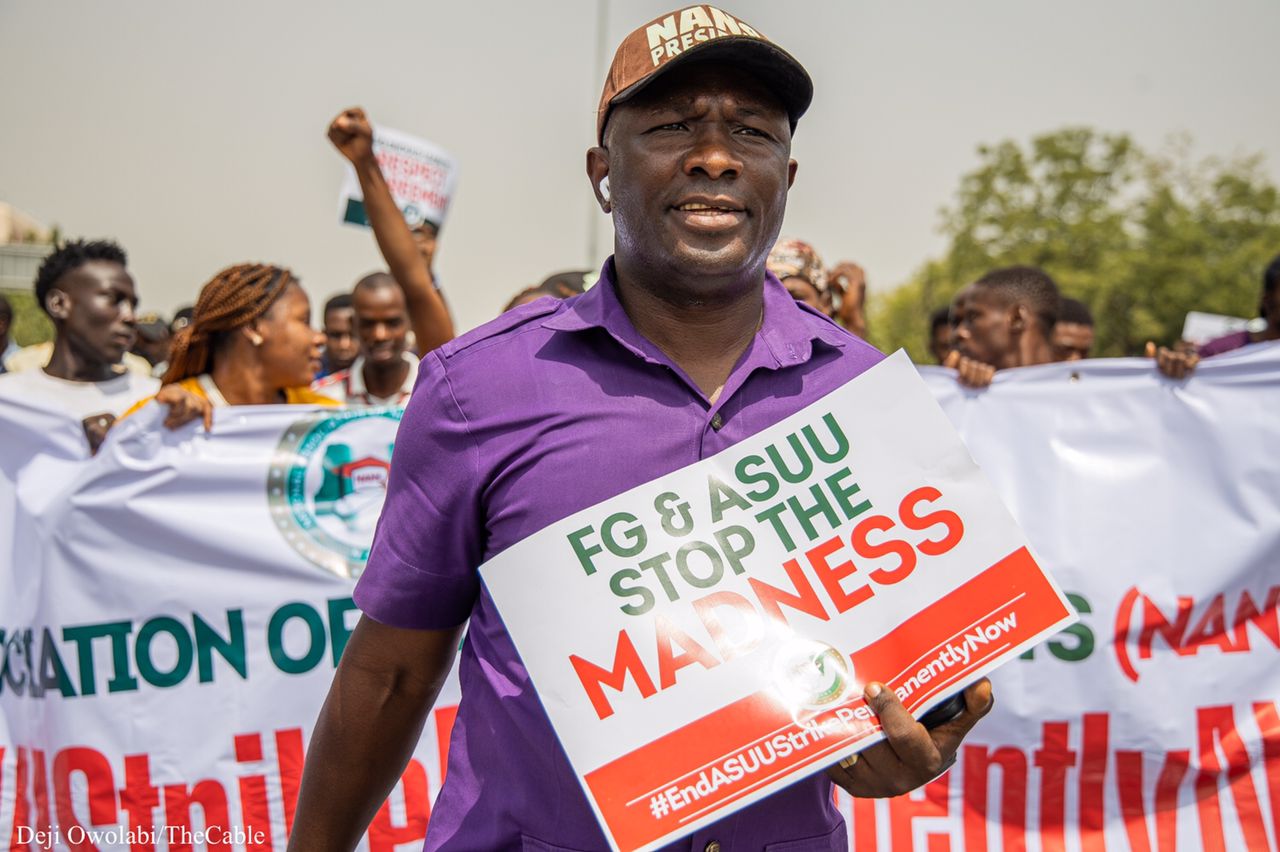Phaedrus, in his dialogues with the ancient Greek philosopher, Socrates, said, “Things are not always what they seem; the first appearance deceives many”. To underscore the supreme need for enlightenment, he added “the intelligence of a few perceives what has been carefully hidden”.
Recently, Nigerians woke up to the news that a United States of America (USA) court in Texas sentenced CEO Anslem Oshionebo and COO Opeyemi Odeyale, two Nigerian founders of a fintech company, Ping Express U.S. LLC, to 27 months in prison for the company’s failure to maintain effective anti-money laundering controls. According to a statement released by the US Department of Justice (DoJ), during the period under review, customers used the Ping Express’ technology platform to transmit more than $167 million overseas, including $160 million transmitted to Nigeria, purportedly without seeking sufficient details about the customers and the sources or purposes of the funds involved in the transactions. Before being sentenced, the duo of Oshionebo and Odeyale reportedly pleaded guilty to their failure to maintain an effective anti-money laundering program.
Since the news broke, several Nigerian news media and individual commentators have erroneously situated this as another Ramon Abbas, commonly known as Hushpuppi, who committed business email compromise frauds and other scams that included defrauding a US law firm of about $40 million. On the night his apartment at the Palazzo Versace was raided, Abbas was arrested alongside eleven others in six simultaneous raids. Detectives seized more than 150 million dirhams (about $40 million) in cash, 13 luxury cars worth Dh 25 million ($7M), 21 laptops, 47 smartphones, 15 memory storage devices, 5 external hard drives, and 800,000 emails of potential victims alongside suitcases full of cash (Dawkins, 2020). Another parallel that Nigerians have drawn is Obinwanne Okeke also known as Invictus Obi who alongside his syndicates was charged by the FBI for defrauding American citizens up to $11m through fraudulent wire transfer instructions in a massive, coordinated, business e-mail compromise scheme (DoJ, 2019). These examples apparently influenced the Nigerian media’s reception of the Ping Express case to the extent that a popular Nigerian news medium cast its headline thus “Nigerian Fintech Company Owners Jailed In United States Over $160m Proceeds Of Fraud Sent To Nigeria”.
Unfortunately, things are not always what they seem! Unbeknown to Nigerians, right before their very eyes, honest young Nigerian entrepreneurs who did not steal money nor conspire to steal money have become victims of first-world scapegoatism because of their evident technological innovations that have disrupted the international financial technology space in the past 7 years. This is why it is important to separate real criminals from audacious serious-minded innovators who have ventured into a global space with very limited black African participation.
Advertisement
To underscore my point, I will share a few examples with readers of peer organizations in the USA and their chief executives that have been victims (and in certain instances enablers) of severe abuse by fraudsters and who have in the past been in either the exact situation that the executives of Ping Express found themselves today or in worst situations where the latter’s infractions simply paled into insignificance. The reader would be at liberty to form his or her opinion independently and come to a conclusion on what truly may be playing out.
In 2021, a report by the International Consortium of Investigative Journalists (ICIJ) showed that Jean-Pierre Bemba Gombo, former vice president of the Democratic Republic of Congo (Bemba) and four aides, had in a period of ten years (2005-2015) utilized Western Union and MoneyGram fund transfer platforms to facilitate an elaborate bribery scheme to cover criminal culpability in war crimes. By way of context, Bemba had previously commanded 1,500 Congolese soldiers who intervened in a conflict in the neighbouring Central African Republic. His victims later told the International Criminal Court (ICC) that Bemba’s forces killed civilians and raped women and girls as young as 10. In 2016, the ICC found Bemba guilty of war crimes, crimes against humanity, and witness tampering (Fitzgibbon & Torres, 2020).
The suspicious activity report (SAR) submitted to US authority by the Western Union cited hundreds of recipients of Bemba’s bribes in 23 countries. The Western Union report was however notable for its timing. It was being submitted 7 years after the fact! According to ICIJ, financial institutions are required to regularly examine transactions and accounts for signs of money laundering and other types of financial crime. Western Union did not file the suspicious activity report until 2015 or later — at least seven years after Bemba’s arrest. The ICIJ reporting team found that banks, money transmitters like Western Union, and other financial institutions have moved vast amounts of money for people accused of corruption and other crimes, often long after allegations were first made public. Bemba’s bribe was part of at least $150 million that went through Western Union and MoneyGram between 2005 and 2017, according to an ICIJ analysis of transactions from the FinCEN Files. Other recent cases in which money transmitters allegedly played a central role include several involving opioid trafficking rings and the crime rampage of a violent Eurasian mobster.
Advertisement
Did the US Justice Department prosecute or jail the money transfer companies’ executives?
Quoting the ICIJ report verbatim, in 2012, the U.S. Justice Department agreed not to prosecute Dallas-based MoneyGram, the world’s second-largest money transmitter, after its agents conspired with fraudsters to trick victims into sending money with false promises of lottery winnings and bargains. MoneyGram officials actively participated in the crime. Their “agents knowingly entered false addresses, telephone numbers, and personal identification” and took fees for processing the frauds. The company admitted this in a statement of facts filed in a US federal court. To escape prosecution, MoneyGram agreed to create a system to spot and stop potential frauds, tie executive bonuses to compliance with the law and require every MoneyGram office worldwide to follow U.S. anti-money-laundering rules, among other conditions. MoneyGram however further broke the agreement when its new anti-fraud system failed to prevent a substantial number of criminal transactions, according to the Justice Department. Rather than suspending the license of MoneyGram and prosecuting and jailing its executives, the International Consortium of Investigative Journalists revealed that the US Justice Department simply fined MoneyGram a $125 million penalty. The company promptly paid (ICIJ, 2021).
In 2014, the US Justice Department citing MoneyGram’s “environment of fraud,” took the unusual step of suing a senior executive of MoneyGram. It accused the company’s chief compliance officer, Thomas Haider, of allowing criminals to use MoneyGram “to defraud innocent consumers and then launder the proceeds”. Haider however settled and was allowed to pay the US government a fine of $250,000. Case closed.
Earlier in 2010, Western Union, the world’s largest money transfer company with headquarter in Colorado, agreed to upgrade its anti-money-laundering systems and paid $94 million to settle charges that drug, human, and weapons smugglers laundered and moved vast sums of money across the USA-Mexico border. Yet, seven years later, a U.S. investigation found that the company still enabled scammers to defraud hundreds of thousands of Americans who paid to claim prizes or job offers that did not exist. Western Union was further fined $586 million. The US Justice Department indeed established that “various Western Union agents were complicit in these fraud schemes, often processing the fraud payments in return for a cut of the fraud proceeds”. It is easy to see that in both damning examples, none of the executives of Western Union or of MoneyGram was prosecuted or jailed for the offense of failing to maintain adequate or effective anti-money laundering controls!
Advertisement
Full disclosure, this author is a strong supporter of the US Justice System and the US brand of democracy. That position remains intact. The author has been a key advocate for the replication of the same standards in Nigeria. However, the gaping disparity in the treatment of Anslem Oshionebo and Opeyemi Odeyale is clearly indicative of double standard – in the face of peer organizations where the same and even worse failing have occurred. For instance, in the case of Western Union, the US Justice Department established that agents of Western Union were culpable and did get cuts in such illegal abetting of crime. In the case of Ping Express, not a cent of such money was traced to the executives or the company’s agents. Indeed, the US Justice Department did storm the home of Anslem Oshienebo, and turned the place upside down in search of damning pieces of evidence. They found none. They also did not find a single shred of evidence that those who transferred illegal money to Nigeria or other places via Ping Express shared proceeds with Oshienebo.
Ping Express and its executives are being sanctioned despite the architecture of the company’s payment technology requiring that customers could only pay from their bank accounts with monies already housed by American banks who in the circumstance are the ones responsible for the flagging of the sources of the monies in their customers’ accounts. In essence, apart from the Know Your Customer (KYC) policy imposed at the point of use by Ping Express, the company again ensured only users with verified bank accounts could transmit funds through its platform while also ensuring that only users with bank accounts in the receiving countries could withdraw such transferred funds. This strategic check put in place by Ping Express contributed to the ease of tracing and apprehending the 5 (five) bad customers that used the platform. Ping Express by the way had over 80,000 users. Any of the readers that used Ping Express would recall that they passed through a serious verification process reminiscent of proper due diligence and KYC and that some even went through an enhanced due diligence procedure.
Ping Express, like MoneyGram while in similar trouble with the law, offered to be given a second chance to upscale its security architecture and ‘create a system to spot and stop potential frauds’, but the US Justice Department did not give Ping Express that chance. However, a second chance, a third chance, and endless further chances were given repeatedly to Western Union and other American companies in a similar circumstance. It is safe to conclude that Ping Express and its executives, (Anslem Oshienebo and his partner) were unfairly punished personally for an administrative offense for which other companies were usually fined.
From available reports, Ping Express cooperated fully with the US Justice Department and handed all backend server information to the authority. This gesture helped the Anti-Money Laundry (AML) investigators to locate and arrest the criminals that leveraged the Ping Express platform to send money to Africa. The authority subsequently prosecuted and jailed those individuals. Now that is justice and the US Justice Department should be commended for that. Ping Express thereafter adjusted its internal suspicious activity reporting and began to regularly forward those reports to relevant authorities in the US thereby effectively correcting its previous lapse. This was acknowledged in the Department of Justice press statement. Afterward, it became near impossible for fraudsters to leverage the platform. Rather than just a fine of Ping Express as was done in the case of its peers (Western Avenue and MoneyGram) and a mutual agreement on outstanding areas that may require additional corrective measures, the US Justice Department decided to prosecute the company, fined it 500,000 US dollars (which in itself is an indication of the relatively inconsequential nature of its infractions compared to its rivals), put it on probation for 5 years and then decided to jail its two executives for 27 months for an offense committed by users of their platform.
Advertisement
Ping Express was even vigorously condemned and sanctioned for ‘operating’ in states where it was not registered despite the ubiquity of the typical virtual technology and the elementary nature of the effectiveness of IP masking and evasive tactics that could empower anyone with half a day’s knowledge of information technology to wilfully reroute his point of access to any state or even anywhere in the world to bypass detection. This is not meant to provide an excuse for Ping Express, but to highlight the delicate nature of intrusion technology vis-à-vis required countermeasures. This in fact is why certain previous measures put in place by Western Union became ineffectual at some point – fraudsters have simply found a workaround!
For those who have read the US Department of Justice’s indictment of Ping Express, you would have also noticed a copious reference to a violation of daily and monthly transfer limits (Griffin, 2022). Whilst the report was not ambiguous that this limit was a personal in-house control mechanism put in place by Ping Express at the onset of its business (as the company did not anticipate it would scale so quickly), many news organizations have erroneously reported this as a violation of US obligatory regulatory standard. It is not. What failed in this instance was the need for matching human resource expansion following the massive initial success and acceptability of Ping Express by users. That in-house policy should have been reviewed and upgraded to match the reality of the growing user base of Ping Express. Regardless, a civilized response from the US Justice Department, based on its established precedent and antecedent (i.e., from dealings with peer organizations), should have been the imposition of a duty upon Ping Express to realistically review and develop a new realistic monthly transaction capping time-table with obligatory compliance.
Advertisement
Whilst the obvious double standards in the way the US Justice Department handled similar infractions by Western Union, MoneyGram, etc may be confounding, what is beyond any speck of doubt and which was not stated in the US indictment is that Western Union, MoneyGram, and others that have been pampered under worse situations enjoyed an absolute monopoly of handling billions of dollars Diaspora remittances to Nigeria and the rest of Africa for decades. Ping Express, founded by US citizens of Nigerian descent, was changing the dynamics of that lopsided economic reality.
Ping Express is economically significant to Nigeria’s strategic national interest. With the digital economy thrust of the federal government, a company owned by Nigerians with the potential of being a serious competitor in the global dollar-denominated remittance market is a national asset. The fact that the US Justice Department did not prosecute, criminalize or destroy Western Union and MoneyGram and their owners is definitely because they recognize the strategic significance of those companies to the US national interest. Does the Nigerian leadership understand that Ping Express offers similar potential with concomitant benefits to Nigeria on the capacity of hardworking Nigerians to be able to remit their hard-earned money back home with limited red-tapism? By destroying Ping Express and its owners, is the US not waging covert economic war against African states and in this case, Nigeria’s strategic interest, especially on the flow of US-denominated foreign exchange?
Advertisement
Summarily, the US Justice Department established four parameters against Western Union and MoneyGram: (i) their executives repeatedly failed to effect satisfactory anti-money laundry controls, (ii) their executives failed to submit suspicious activity reports for 7 years in certain documented instances (iii) their officials participated actively in the violation (iv) their officials got financial rewards or cuts for their participation. The US Justice Department did not prosecute the executives of both companies. When they attempted to prosecute them, the Department promptly gave the American executives the generous option of fines to avoid conviction. The Justice Department also readily allowed them to improve the processes and technical lapses that were observed in their systems. Even after repeated failures, they were given further chances. In the case of Ping Express on the other hand, (i) the executives failed to effect satisfactory anti-money laundry controls (ii) the executives failed to submit suspicious activity reports for about 3 years (iii) officials of Ping Express did not participate in the violation as a norm (iv) officials of Ping Express were not rewarded or given cuts for abetting the violations. The US Justice Department however decided to prosecute Ping Express and its officials and had the Nigerian executives sentenced to 27 months in prison.
In conclusion, it is important to note that Anslem Oshienebo and his partner Opeyemi Odeyale are not been sanctioned for committing the crime of fraud. They are pretty much being jailed for not doing enough to prevent possible crime by people they do not know. Anslem Oshienebo owns Ping Express. That company disrupted the international money transfer space with its technology and empowered Africans to be able to remit funds directly to Africa (Nigeria in particular) with greater ease. During Ping Express’ active period, Diaspora remittance to Nigeria increased tremendously. Anslem’s App ensured every transaction originated from a properly verified bank account with a robust KYC fidelity. Each transaction also terminated, in the case of Nigeria, in bank accounts with proper KYC backed by inviolable BVN. Technically, Ping Express was not a black hole as every transaction on it could be traced and the individual involved found. Ping Express’ entrance into the market was a valid business threat to established big-time players like Western Union and MoneyGram. Even the blind can easily sense that the African Fintech Market is the prize in this case.
Advertisement
While “things are not always what they seem” as Phaedrus stated, it is obvious that with the benefit of peer comparison, we now know what things truly are in this matter. I have some questions: what is the Nigerian government’s Ministry of Digital Economy going to do about this? What is the Nigerian government’s Diasporan Commission going to do about this? What is the Nigerian government’s Ministry of Foreign Affairs going to do about this? You cannot interfere in US court activities, but you can apply strong diplomacy to let your counterparts in the USA know that you know what is truly happening and that you are not happy with the ‘coincidences’ of gently slapping their child on the wrist whilst having your child violently clubbed over the head!
Ariyomo is a Fellow of the Nigerian Society of Engineers and the pioneer Coordinator of the Ondo State Information Technology Development Agency.
Credit
Dawkins, D. (2020, July 14). Nigerian Influencer Ramon ‘Hushpuppi’ Abbas, Accused By FBI Of Money Laundering, Is Denied Baill. Retrieved July 19, 2022, from Forbes: https://www.forbes.com/sites/daviddawkins/2020/07/14/nigerian-influencer-ramon-hushpuppi-abbas-accused-by-fbi-of-money-laundering-is-denied-bail/?sh=378da3ab7f28
DoJ. (2019). Massive International Fraud and Money Laundering Conspiracy Detailed in Federal Grand Jury Indictment that Charges 80 Defendants. U.S. Attorney’s Office, Central District of California, Department of Justice. California: DoJ.
Fitzgibbon, W., & Torres, M. (2020, October 13). The fastest way to send criminal cash: money transmitters. (ICIJ) Retrieved July 19, 2022, from The International Consortium of Investigative Journalists: https://www.icij.org/investigations/fincen-files/the-fastest-way-to-send-criminal-cash-money-transmitters/
Griffin, D. (2022, July 15). Fintech Execs Convicted in US After $160 Million Sent to Nigeria. Retrieved July 20, 2022, from Bloomberg: https://www.bloomberg.com/news/articles/2022-07-15/fintech-execs-convicted-in-us-after-160-million-sent-to-nigeria
Views expressed by contributors are strictly personal and not of TheCable.







